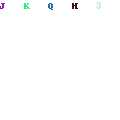Admission to the University of Pretoria is subject to the General
Regulations of the University.
In order to register for a first bachelor’s degree at the University, an applicant should have completed the National Senior Certificate (NSC), or equivalent qualification and meet the minimum requirements for admission to bachelor’s degree study.
Applicants must also comply with the particular subject and achievement level requirements as well as with the minimum Admission Point Score (APS) for the relevant programme.
The APS calculation is based on an applicant’s achievement in six 20-credit recognised subjects, by using the NSC ratings that is the “1 to 7 scale of achievement” as explained in the table.
Thus, the highest APS that can be achieved is 42.
Please note that Life Orientation is a 10-credit subject and is excluded from the calculation when determining the APS.
Grade 11 (or equivalent) results are used in the conditional admission selection process.
With selection into the programme being competitive, applicants generally need to exceed the minimum entry requirements to secure a place in the programme. Compliance with the minimum requirements does not automatically guarantee admission to the degree.
In the case of school-leavers, the results in the final NSC, or equivalent qualification will be the determining factor with regard to final admission.
All modules will only be presented in English, as English is the language of tuition, communication and correspondence at the University of Pretoria.
Important information on undergraduate programmes
The Faculty offers the following undergraduate programmes:
– Bachelor of Veterinary Science (BVSc)
– Bachelor of Veterinary Nursing (BVetNurs)
Both undergraduate programmes in this Faculty include selection procedures, which are based on merit within different categories
The following persons may be considered for admission:
– applicants who are currently in their final school-year and have applied with their final results of the preceding year of schooling (Grade 11 or equivalent);
– applicants who have completed their final school-year, but have not yet commenced further studies;
– applicants who are in possession of a certificate that is deemed by the University to be equivalent to the required National Senior Certificate (NSC) with university endorsement. This certificate must be certified by Universities South Africa (USAf);
– applicants who are currently enrolled for tertiary education;
– applicants who are graduates from another tertiary institution, or have been granted the status of a graduate of such an institution;
and
– applicants who are graduates of another faculty at the University of Pretoria.
The highest-ranking applicants are selected until the capacity is reached within each category.
The Admissions Committee of the Faculty of Veterinary Science may assign spaces to another category when there are insufficient
applicants who meet the minimum criteria in a particular category.
The final number of places offered to applicants is determined by the Admissions Committee, taking into account the teaching facilities
and available resources.
School-leaving and university applicants who are conditionally admitted will forfeit their placement if they fail to meet the conditions as
set in Annexure G.
In order to retain conditional admission applicants need to comply with the minimum subject requirements based on their final
school-year examination results.
South African school-leaving applicants enrolled for the NSC or IEB who have forfeited their placement and who still comply with the
minimum requirements will automatically be considered in the second round of selection in January.

Programme:
Bachelor of Veterinary Science (BVSc)
[6 years]
Closing date: SA – 31 May, Non-SA – 31 May
Proposed second choice programmes for BVSc are BSc (Biological Science), BSc (Zoology) and BScAgric (Animal Science).
Careers: Veterinarians in private practice, research, academia or state veterinary services. Veterinarians can also work in the following fields: diagnostic laboratories, veterinary public health (milk and meat hygiene, control of transfer of disease), technical services, research and product development in pharmaceutical and food industries, consultancy, laboratory animal management, wildlife management, poultry and pig production, and animal welfare.
Bachelor of Veterinary Nursing (BVetNurs)
[3 years]
Closing date: SA – 31 May, Non-SA – 31 May
For advice on a second choice programme for BVetNurs, please consult a Student Advisor on +27 (0)12 420 5144.
Careers: Veterinary nurses can be employed by the following institutions: private veterinary practices, veterinary academic hospitals, the pharmaceutical industry, the animal food industry, animal welfare societies, zoological gardens, game parks, laboratory animal units, rehabilitation centres, research centres, animal boarding
establishments, organised agriculture, dairies and farming operations
Other Requirements Accepted Include;
For applicants in other schooling systems (IGCSE/GCSE/NSC OL/O Level/HICGCE/AS Level/A Level/IB HL or ABITUR), refer to Annexure A for conversion of scores to NSC equivalent.
